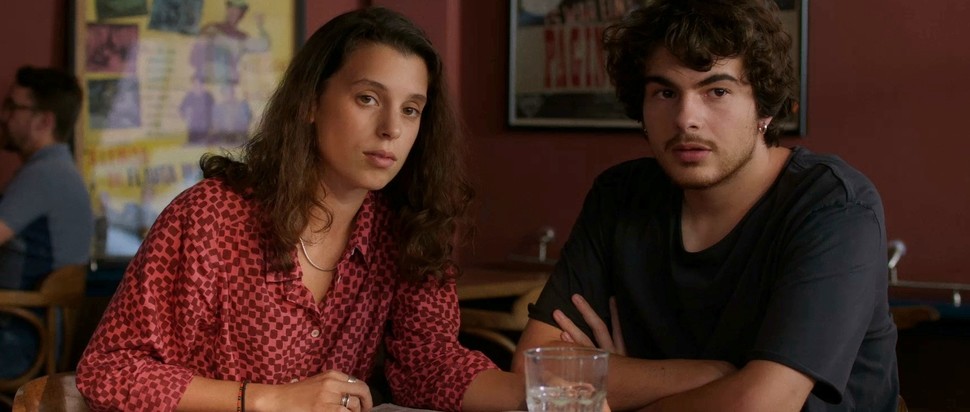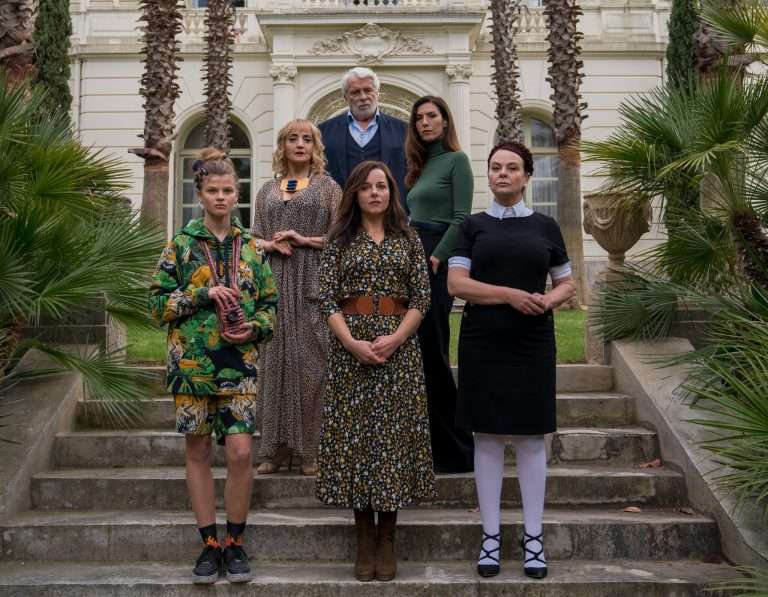João Rosas’ “A Luminous Life” (A Vida Luminosa, 2025) opens with Nicolau (Francisco Melo) just having turned 24. But he’s not at all ecstatic on the occasion. Residual pangs are tying him down. When friends insist on chilling with a few drinks, he excuses himself, stating he’s depressed. He cannot partake in exultation because he cannot shake off being mopey.
Nicolau is the archetypal drifter, a sad sack who’s recovering after a breakup. It’s been a year, and he hasn’t moved on. He’s still absorbed in the ache. He flings about, meandering through the city of Lisbon. He confesses to being clueless as to what he should be doing. His mother gently presses whether he still wants to be a musician. He’s nudged to invest more seriously in the pursuit of a job. If he keeps up this behaviour, all his life will dart past. But Nicolau struggles to derive purpose.
With his bicycle, he goes about the city, looking for something which he cannot quite pin down. He seeks a sliver of certainty and direction that can pull him out of stasis. But he’s unmoored, left in the cold after the end of his relationship. He shifts through a string of gigs, keeping him preoccupied for just a brief while. We follow him through the streets and corners of Lisbon. He has an easy, scruffy charm, which doesn’t make amiability a tough sell, yet he’s buried in the memory of a relationship that didn’t work out.
There’s the whiff of a potential romantic interest in Chloe (Cecile Matignon), whom he initially separates himself from, but they encounter each other again. In between, he moves between small jobs, reuniting with old friends like Mariana (Francisca Alarcao). Lisbon itself is an abiding, focalising character. It watches as people make mistakes, rot in regrets, and get trapped in circles of the same, repetitive, bad decisions. How long before we realise the degree of our misjudgements, get a grip on our lives?

A director in the film is asked about his work. He gripes about his work being misunderstood, ultimately declaring it to encompass the youth of a city. The cheeky self-reflexivity threads it within this film itself, which runs along the same lines. There are men flagellating themselves over being fooled in relationships, till a female co-worker chips in to give a necessary sobering sense of perspective. “Encounters bring happiness”, Chloe tells Nicolau at one point.
“A Luminous Life” is a wry ode to chance meetings which might be evanescent but leave just the kind of echo we need at times to wake up. We roll along with life’s tides until a stray exchange jolts us into a wider vision.
João Rosas finds a rich seam of irony and levity. There are many pleasures to seek in a film with silvery gleams. It dances lightly on its feet, mixing free-wheeling exchanges on fundamental subjects and anxieties with rambling energy. Rosas’ screenplay peppers in the wit and dynamism, lively, curious conversations can drive on. There’s a spirit of wandering that guides the film, basking in curiosity and reflection. But Rosas never lets any of it turn the film laboured or inflated in its philosophic musings.
The chatter is nicely embedded as part of how people interact, bounce ideas off each other in regular situations. Everything from jaundiced patriarchal ideas of relationships to the precarity capitalism exerts to death gets jauntily riffled through. Melo has this beautiful transparency about him. All Nicolau listens to seems to seep into him.
Every conversation, offhand or elaborate, inadvertently fills into the form of our lives, what arc it could take. Nicolau is drawn to a girl he sees on the road and follows her to the cinema. The women in the film are largely more sorted and driven than he, though a scene with Nicolau’s new roommate taps well a similar kind of paralysing indecision in the shadow of a breakup.
“A Luminous Life” reflects a wondrous openness to life’s loose rhythms, navigating and embracing the millennial volatility, or just generally someone who’s at a standstill and too lost to see a way out. Nicolau learns to lean into what he might have lost, the delight of fresh experience with strangers, trying out the unexpected.
Moving out of his parents’ house becomes a key step. Along with his cinematographer, Paulo Menezes, Rosas locates a languid, restful beauty within the folds of a city, knitting in how its people define themselves as part of it, how the curve of a road might present a life-expanding chance meeting. This is a warm, gliding drama, soaking in the ebbs of daily experiences with generosity and adventurousness. It urges us to walk into the unknown, not pull away.




![Never Rarely Sometimes Always [2020] Review – A Quietly Heartbreaking Drama on Abortion Experience](https://79468c92.delivery.rocketcdn.me/wp-content/uploads/2020/04/Never-Rarely-Sometimes-Always-2020-768x332.jpg)
![Sad Beauty [2018]: ‘NYAFF’ Review](https://79468c92.delivery.rocketcdn.me/wp-content/uploads/2018/07/SAD-BEAUTY-STILL-13-768x511.jpg)
![High Life [2019] Review: Sci-fi high](https://79468c92.delivery.rocketcdn.me/wp-content/uploads/2019/03/High-Life_HOF-768x432.jpg)
![Heavy Trip [2018]: Fantasia Film Festival Review](https://79468c92.delivery.rocketcdn.me/wp-content/uploads/2018/07/Heavy-Trip-1-768x432.jpg)
